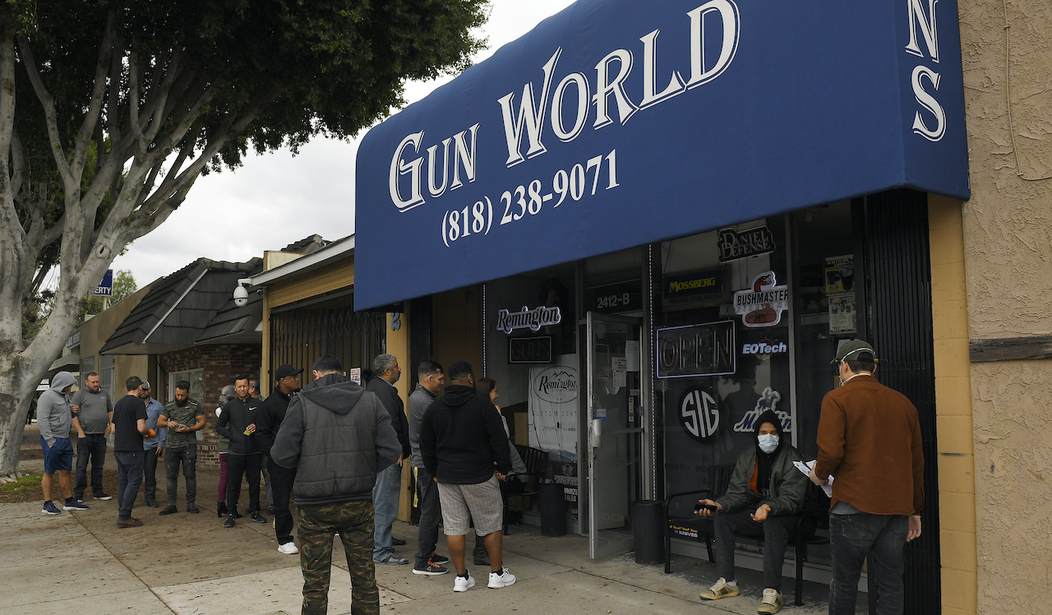Why are so many gun owners adamantly opposed to things like gun licensing and registration laws? Because we’re concerned that it will lead to things like this.
California gun owners will soon have their personal information released to gun-violence researchers across the country.
Governor Gavin Newsom (D.) signed Assembly Bill 173 into law on Thursday. The bill requires the California Department of Justice to supply information identifying firearm and ammunition purchasers to a newly created research center at the University of California Davis or any other university that requests them. The information includes details such as the buyer’s name, address, date of birth, what they purchased, when and where they bought it, and more.
“This bill would name the center for research into firearm-related violence the California Firearm Violence Research Center at UC Davis,” the bill’s text reads. “The bill would generally require that the information above be made available to the center and researchers affiliated with the center, and, at the department’s discretion, to any other nonprofit bona fide research institution accredited by the United States Department of Education or the Council for Higher Education Accreditation, as specified, for the study of the prevention of violence.”
So much for a right to privacy. Thanks to Newsom’s signature, even the most vocal anti-gun activist can now obtain the personal details of California gun owners as long as they’ve got the “proper” academic credentials. This despite the fact that there’s no conceivable reason for any researcher to need personally identifiable information in order to dig through data on “firearm-related violence.”
The California Rifle & Pistol Association blasted the bill after it was approved by the legislature and called on Gov. Gavin Newsom to veto the bill, but it was always a foregone conclusion that he was going to put pen to paper and sign the measure into law. Still the CRPA letter does hint at the potential legal strategy that might be used to challenge the law now that it’s in effect.
The identities and confidential personal information of individuals should only be provided by DOJ or other state entities to law enforcement agencies when conducting an investigation that has a specific need for it. No other entity – not even research institutions – has sufficient justification to have access to an individual’s private information. Research conducted by the California Firearm Violence Research Center and other institutions to prevent violence should not be about individuals and their personal information, rather about a broad-based study about the prevention of violence, where an individual’s specific personal information is irrelevant.
Most importantly AB 173 is in direct violation of the California Constitution which states in Article 1, Section 1, “All people are by nature free and independent and have inalienable rights. Among these are enjoying and defending life and liberty, acquiring, possessing, and protecting property, and pursuing and obtaining safety, happiness, and privacy.” In all, the California Constitution names “privacy” as a fundamental right of all Californians five times!
CRPA Legislative Affairs director Roy Griffith also pointed out the fact that former governor Jerry Brown signed the state’s Consumer Privacy Act into law back in 2018, and just last year voters in the state approved the California Privacy Rights Act by a wide margin. As Griffith wrote in his letter to Newsom, “[c]learly Californians value their privacy and strong measures have already been put in place to protect it! This bad legislation goes against it all!”
Yep, but in California bad bills have a way of becoming bad law, particularly when it comes to our right to keep and bear arms. I’d say that this particular law has an excellent chance of eventually being thrown out by the courts, but that’s cold comfort for the millions of gun owners in the state whose right to privacy under California’s constitution will now be violated thanks to Gavin Newsom and his anti-gun allies in the state legislature.









Join the conversation as a VIP Member